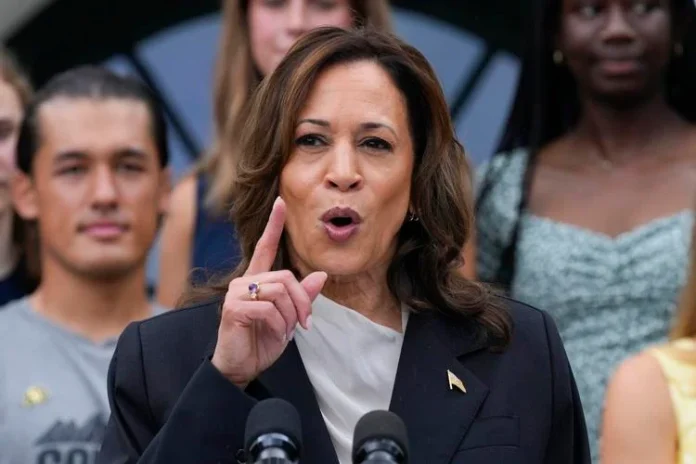As she accepted the Democratic nomination Thursday night, Kamala Harris played up her attorney-general past. “As a prosecutor, when I had a case, I charged it not in the name of the victim, but in the name of the people,” she told the United Center crowd.
This follows a strategy she has pursued since ramping up her campaign. As a Law & Order-themed ad that aired Monday had it: “We need a president who has spent her life prosecuting perpetrators like Donald Trump.”
On one hand, such a tack relies on simple logic. Harris ascended politics on the ladder of her prosecutor reputation. With her opponent convicted of a felony — and him staking his candidacy on the Democrats’ alleged softness on crime — “successful career prosecutor” makes for a stellar defense.
But while perhaps a sound political strategy, Harris’ embrace of her previous job runs her into an unexpected roadblock: Hollywood has spent many years shaping a tepid view of prosecutors in the collective mind.
Screens, to be sure, have long been filled with heroic lawyers — Perry Mason, Atticus Finch, McConaughey’s Jake Brigance in A Time To Kill, even Alicia Florrick in The Good Wife. But all are defense attorneys, righting wrongs with a cowboy’s independence and a choirboy’s integrity.
Prosecutors in popular film and television shows tend to be reduced to second-tier players in their own drama — or, worse, crash up on the shoals of the very system they created.
Consider the antagonists to all those defense attorneys. These prosecutors exist as lovable losers, on the floor to give up the ball so the defense can bury a three. So ineffectually did Perry Mason’s L.A. County prosecutor Hamilton Burger wage his battles that the actor playing him, William Talman, would often protest that his character wasn’t a flunky, generally a pretty good sign you are one.
“Burger doesn’t lose. How can a district attorney lose when he fails to convict an innocent person?” he was fond of saying, conveniently ignoring the fact that he never seemed to charge a guilty one, either. Decades later, My Cousin Vinny‘s prosecutor found himself confused and regularly showed up by Joe Pesci. (Trump, not unsavvily, has played on these perceptions by calling his DA nemesis Alvin Bragg “lazy on violent crime.”)
A rare textured characterization of a prosecutor came with Sidney Lumet’s 1996 drama Night Falls on Manhattan, in which Andy Garcia’s ADA character Sean Casey enjoys a meteoric rise while trying to hang on to his principles. But the movie faded — and, in any event, Garcia’s mushy blend of righteousness and compromise withers before the heroic archetypes across the courtroom. (Plus 40 years earlier Lumet made “12 Angry Men,” whose whole arc depended on a collapsing prosecution.)
When not dogged by impotence, prosecutor characters tend to trip over their own cynicism. Law & Order made this a specialty, veterans like Jack McCoy often hard-bitten and resigned. McCoy’s protégé, Claire Kincaid, slowly sank from idealistic to disillusioned as the conviction game intensified. As a former assistant U.S. attorney wrote (about real prosecutors) for NYU’s Brennan Center for Justice a few years ago, “I became a prosecutor because I don’t like bullies. I stopped being a prosecutor because I don’t like bullies.”
The more Kamala Harris leans into her profession, it seems, the more she pokes at a sting-y truth: entertainment has spent decades programming us not to root for it.
A sympathetic depiction of a prosecutor has graced our summer screens with Jake Gyllenhaal embodying the Rusty Sabich character in Apple TV+’s Presumed Innocent. But to get out of the murder charge he needs — what else? — a good defense attorney.

